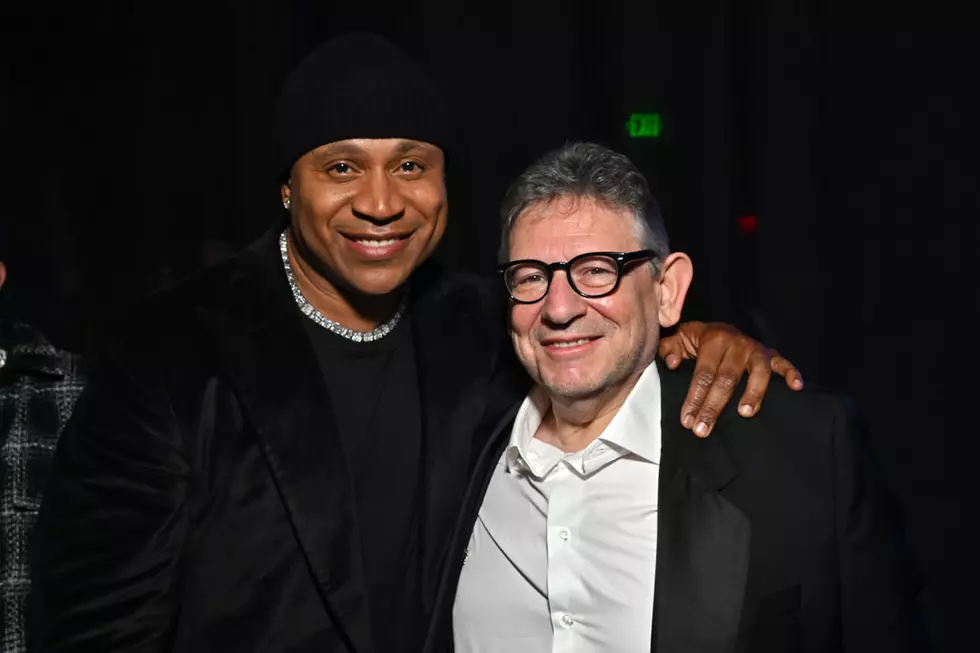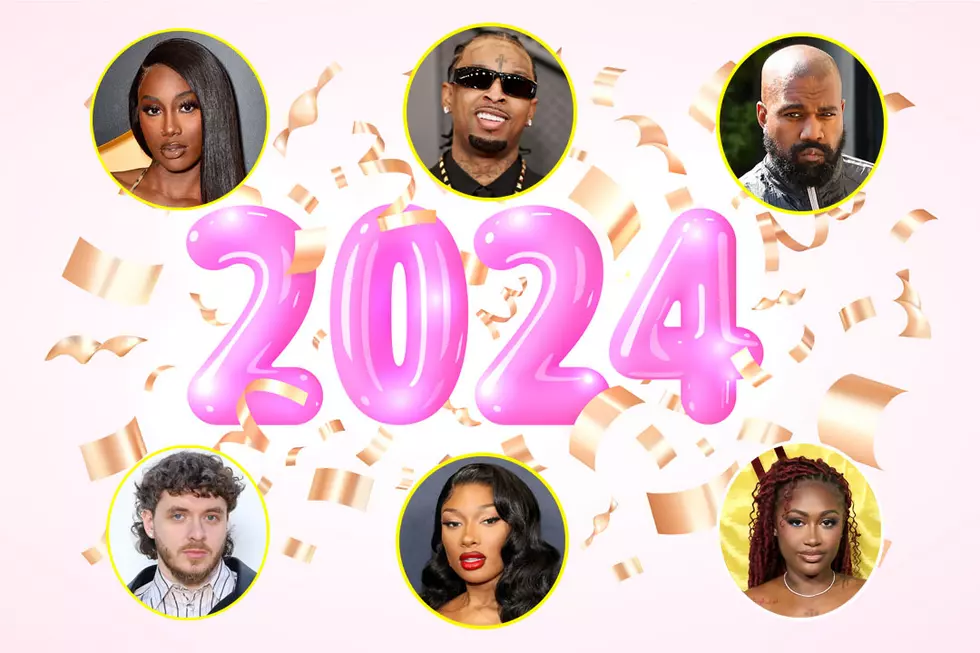
Cee-Lo Thinks Hip-Hop Should Welcome More R&B
In the past few years, there's been an evident change in how hip-hop is defined. More and more, artists with an R&B-esque sound and a distinctly hip-hop flair are entering into the genre with a style that blurs the line between the two more than ever before, leaving many to take a deeper look at what hip-hop is in its current state. With newcomers like August Alsina and Ty Dolla $ign—both of whom made the XXL Freshmen 2014 cover on the same idea—on the rise, hip-hop has begun morphing into something that feels bigger than rap.
As an artist who kick-started his career in the hip-hop quartet Goodie Mob and transitioned into singing with his soul-soaked Gnarls Barkley project, CeeLo spoke with XXL about the blending of hip-hop and R&B, what's lacking in the genre today and the current state of the music scene. —Miranda Johnson
XXL: This year's XXL Freshmen Class included R&B singers for the first time. Do you think the lines between hip-hop and R&B are more blurred than ever?
Cee-Lo: I don’t know if I would say that the lines are blurred. I think in all things the lines should be more definitive. A definitive course of action, a creative contribution. I think in all things the balance should be better.
When people think of hip-hop, it's usually only associated with rap. Now you have a lot of people entering the genre, like an August Alsina or a Ty Dolla $ign, who can’t easily be classified as pure R&B because they have such a strong hip-hop element. Do you think hip-hop is morphing into something that’s more than rap?
Yeah, I do. I would hope so, but I would also hope that real rap would remain. It’s only as real as the reality itself, and the reality is that the urban approach to creating music and applying that energy and experience to art is going to be broader and broadened because of it. We have to remember that rap is not just a genre or a style, it’s an actual cadence. So therefore, that cadence can also be very constricting, and there’s a lot more that can be elongated by harmony and melody. If you want to continue to add on and lengthen the lifespan of our art form, then we have to continue to embrace that.
But I don’t know if it can still be called rap or hip-hop; maybe those titles are more limiting than not. Maybe we should just get back to a point where we can definitively define Black music. And just because someone’s a Black artist doesn’t mean their music or what they do is considered Black music. I don’t know if anybody thinks what I’ve been able to do is definitively Black music. But we’re also looking to broaden the horizon, redefine what’s considered Black music. At least that’s been my artistic plight and journey, so anybody who would take up that cross and continue that work for the betterment and preservation of our art form, I would definitely be all up for that.
What I first wanted to say to you, though, is that there is, like, a total separation between church and state [now], when at one point rap and the community itself was more of a democracy. There’s no moral fiber or those basic fundamentals that ground it. It’s most certainly expression, but I just don’t know if it's art anymore. It's most certainly corporate and it's commerce, which would make it product. But it's, of course, a product of the environment, and the campaign begins to be, "When in Rome..." It’s not a reflection of the true harsh realities that our community stills suffers from. But I do think it’s part fantasy, fun, and entertainment, but it’s no longer fundamental. It’s not the best balance of reality and real estate.
There has been a sense that up until the last year and a half or so, with the Kendrick Lamars and August Alsinas, we haven't seen what hip-hop really is. Do you think we’re getting back on the road to restoring it?
I think what’s cool or quotable about it is, [August and Ty] are the first true representation of a new chapter, or continuance. I happen to know Ty on a personal level, and I happen to know how prolific he is. But it has all yet to be released and has yet to resonate—even his intention in doing so. I think as insiders and appreciators of the art form, we see a glimpse of hope in them both. Prince said something recently that can touch on that; he said we very seldom can make but the one mistake and we’re at square one. So I would like to see some of these young cats with potential last as long. A lot of people may discount my contributions—I just referenced myself—but I’ve been around for 20 years. It’s not easy to do. If I would want to be an inspiration to anybody, I would want it to be that type of resilience and discipline and persistence.
I just happen to be a fan of so many greats that I’ve had the pleasure of meeting, that they could see the reflection of themselves in my work. It’s like it’s really refreshing for them. I just sat and had a long conversation with Larry Black from Cameo—who’s one of my all-time favorites—and I think it just really did him a great justice to know that everything they have done was not in vain. I do believe that us as the children, we should really be paying that homage and aspiring to be as great. There’s some big footprints to follow in, but that should be your motivation.
I just think the first step to becoming great is having great taste. We have to acknowledge this for one another because this is a younger generation. They more often reference each other as opposed to referencing the elders or the generations before them so that we may all be informed. Knowledge is power, and when information is equality we just empower each other with that current knowledge and make sure that it stays circulating. That’s really important. So if they’re pulling from any of those places, I would like to hear that and how they inspire you. Let them know that you know your history and have done your homework and it’s not just you being instinctive or impulsive, so that people really know where to pull from. Young people need to go back and fish from these same ponds.
Speaking of footprints and fishing from the pond, who do you think were some of the early people, besides yourself, that helped merge hip-hop and R&B. Somebody like Mary J Blige or...?
Even before that, we’re talking about the Force MDs, we’re talking about UTFO, The Cold Crush Brothers, the Funky Four Plus One More. I mean, a lot of those old-school routines had melody to them. It was those quartets and those harmonies that they did, and just that real crew that they had, just bouncing back and forth off of each other. There was something melodic and harmonious amongst them. As opposed to in modern times, it’s become like a one-man show. There was an era in hip-hop—like Run-DMC, for example—it was Run’s house, but DMC was the king of rock, and they both continuously praised Jam Master Jay. Hip-hop was a lot more selfless then, and everybody wanted to be a brick in the foundation of building that house and that monument. No one man was responsible for doing it. You just don’t see a lot of that today.
How would you define hip-hop? As in, when you think of hip-hop, what comes to mind?
I would say hip-hop is inheritance; it’s a family heirloom that was passed down. The Kool Hercs and Grand Master Flashes, all the OGs, they were able to go and do the research and use that music. Take over that music as inheritance. There was so much live musicianship. So much to borrow from, so much that’s left untapped and unused, undiscovered. So they found bits and pieces of the most practical servings to where it could be efficient and effective. We want that instant gratification, where it wasn’t too much of a composition where you couldn’t infuse your own into it. It leaves room to envision your own ideas and press it upon that. You're not concerned with trying to follow someone else’s guidelines.
I see it like that, and I see it as food. We’re able to eat off that. Not even like scraps; it’s plentiful like a harvest. So much music to pull from and we don’t even use it anymore. I think our elders would be flattered. If we use it respectfully, in our truth that we address. There has to be some variation. We're not all drug dealers.
A lot of people have said that R&B is dead. How do you feel about the current state of R&B?
I remember a time where it wasn’t called R&B. I don’t think the O'Jays were R&B; I don’t think The Spinners were R&B; I don’t think Earth Wind And Fire was R&B. It was Black music, just soul music. That’s it, that’s everything. So R&B is like an offshoot, a subculture. I don’t necessarily like R&B, because I believe it’s a soap opera. It has to do with a lot of malice and deceit. Why does it got to be, you're gonna love somebody better than somebody else? Why can’t that woman just be available? Why she got to be sneaking off with you?
To me, it’s done more harm than anything, in my opinion. 'Cause when I think about our community and our broken homes, we can’t perpetuate that type of thing and sensationalize it in song. I believe that love, hurt, pain and joy—all of those emotions that encourage us to be artful—can be done tastefully. Truth and situations and scenarios can be addressed in song, but I believe that the soap opera of R&B, I think it’s like a movie set. I believe a lot of the scenarios depicted in R&B music are childish and not as effective in adult life.
Check Out All Our Coverage Of The 2014 XXL Freshmen Class Right Here
More From XXL









